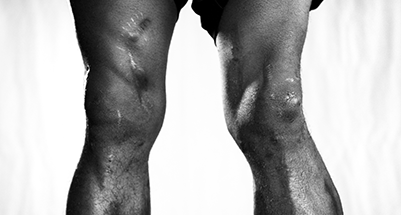Understanding Moral Injury
To effectively address moral trauma, or moral injury, it is crucial to first define moral injury and understand its profound implications. Moral injury is often misunderstood and carries significant psychological and emotional weight.
Clinical and research sources define moral injury as the distress experienced when individuals witness or participate in events that violate their deeply held moral beliefs. This can include participating in actions that cause harm to others, witnessing acts of violence or betrayal, or being forced to make challenging decisions in high-pressure situations.
In the sections that follow, we will delve deeper into what moral injury entails, the signs and symptoms to recognize, its specific effects on military personnel and health care professionals, as well as the available treatments and recovery options. You can learn more about moral injury from the Department of Veterans Affairs’ National Center for PTSD, or by reading the March 2025 article on moral trauma that appeared in Frontiers in Psychology.
What is moral injury?
Moral injury is the psychological and emotional distress that arises when individuals witness or partake in events that conflict with their moral values and beliefs. While frequently associated with military combat situations, moral injury can occur in any context where a person’s moral compass is challenged.
It is essential to distinguish moral injury from post-traumatic stress disorder (PTSD), although they can coexist and share some symptoms. According to the VA, PTSD is “a mental disorder that requires a diagnosis” while moral injury is considered “a dimensional problem” with no definable threshold for its presence. A veteran with moral injury could have a mild or severe appearance of moral injury.
There are multiple examples of moral injury. In military settings, it can result from participating in acts of violence, witnessing the death or suffering of innocent civilians, or being compelled to make morally difficult decisions. In nonmilitary contexts, moral injury can occur in professions such as health care, law enforcement or journalism, where individuals may encounter situations that challenge their moral integrity.
In September 2025, the American Psychiatric Association updated its Diagnostic and Statistical Manual of Mental Disorders to include moral problems, including moral injury. The manual was updated to define moral problems as ones that include experiences that disrupt one’s understanding of right and wrong, or sense of goodness of oneself, others or institutions. This inclusion and definition could lead to more opportunities to better understand and treat moral injury.
Signs and symptoms
Recognizing the signs and symptoms of moral injury is crucial for understanding its impact on individuals. Moral injury can manifest in various ways, affecting a person’s behavior, psychological well-being and even physical health. The Moral Injury and Distress Scale is a self-report measure that assesses exposure to potentially morally injurious events and the possible impacts of moral injury.
Behavioral signs of moral injury:
Individuals experiencing moral injury may exhibit changes in their behavior. They may become withdrawn, isolate themselves from loved ones or show self-destructive tendencies. Additionally, they may have difficulty concentrating, experience mood swings or engage in risky behaviors.
Psychological symptoms of moral injury:
Moral injury can profoundly affect a person’s psychological state. Common psychological symptoms include feelings of guilt, shame, anger and despair. Individuals may also struggle with intrusive thoughts, nightmares, insomnia or loss of interest in activities they once enjoyed.
Physical manifestations of moral injury:
Moral injury can have tangible effects on a person’s physical health. Some individuals may experience fatigue, headaches, gastrointestinal problems or changes in appetite. Additionally, they may have an increased vulnerability to developing chronic conditions or experience a weakened immune system.
Treatment and recovery
Treatment for moral injury involves various therapeutic interventions and supportive measures aimed at recovery. Understanding and addressing moral injury is crucial for individuals who have experienced trauma in the context of their moral beliefs and values.
Therapeutic interventions play a significant role in helping individuals cope with moral injury. One evidence-based approach is cognitive processing therapy (CPT), which focuses on identifying and challenging negative thoughts and beliefs related to the traumatic event. This therapy helps individuals reframe their understanding of the event and develop healthier coping strategies.
Another effective intervention is eye movement desensitization and reprocessing (EMDR). EMDR incorporates elements of cognitive therapy with bilateral stimulation, such as eye movements or tapping, to help individuals process traumatic memories and reduce distressing symptoms.
Supportive measures are also essential for individuals recovering from moral injury. Peer support groups provide a safe space for individuals to share their experiences and receive understanding and encouragement from others who have faced similar challenges.
Additionally, individual counseling and therapy sessions can offer personalized support and guidance to help individuals navigate the complexities of moral injury. Therapists trained in trauma-focused therapies can assist individuals in developing coping mechanisms and fostering resilience.
Recovery from moral injury is a process that requires time, patience and support. By combining evidence-based treatment approaches, therapeutic interventions and supportive measures, individuals can find healing and regain a sense of well-being.
Learn more from the VA’s National Center for PTSD.
For no-cost help with VA benefits claims related to moral injury and other conditions, visit benefitsquestions.org and find the DAV benefits advocate nearest you.








